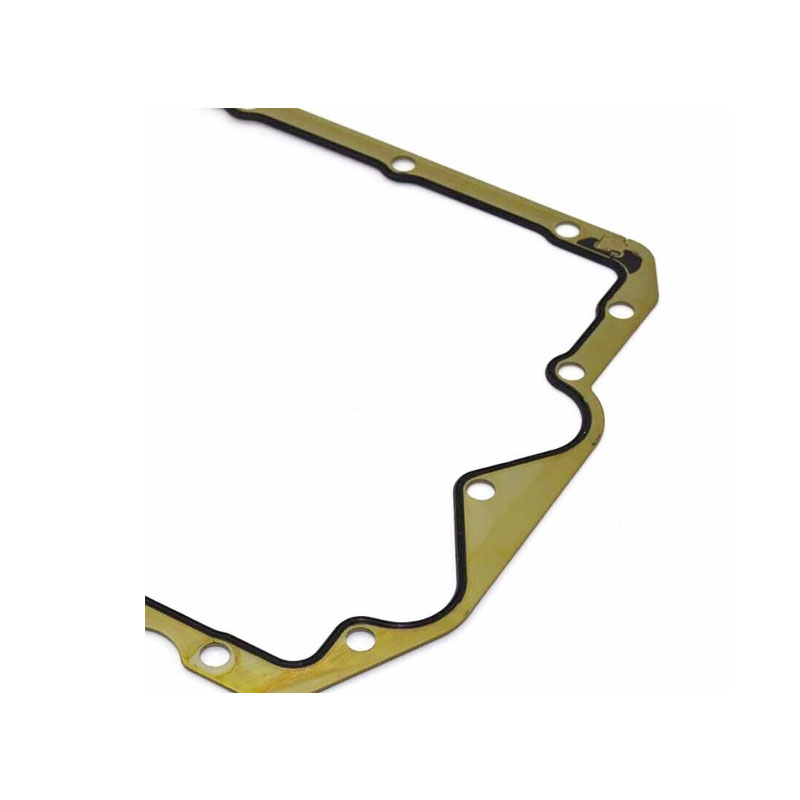valve oil seal
Understanding Valve Oil Seals Importance and Functionality
Valve oil seals play a crucial role in ensuring the smooth operation and longevity of various mechanical systems, particularly in internal combustion engines. They are designed to prevent the leakage of oil and fluids from the engine while allowing the movement of the valve components. This article delves into the importance, functionality, and maintenance of valve oil seals, providing insights into why they are vital for engine performance.
What Are Valve Oil Seals?
Valve oil seals are small, yet essential components typically made from durable materials such as rubber or elastomers. They are strategically positioned at the top of the engine's valve guides, where the valve stems pass through. Their primary role is to regulate the flow of oil from the engine's lubricating system into the combustion chamber, thereby preventing excessive oil consumption and ensuring optimal engine function.
Importance of Valve Oil Seals
1. Preventing Oil Leakage One of the most critical functions of valve oil seals is to prevent oil from leaking into the combustion chamber. If oil enters the chamber, it can lead to increased exhaust smoke, diminished engine performance, and potential engine damage.
2. Enhancing Engine Performance Properly functioning oil seals ensure that the correct oil pressure is maintained within the engine. This not only enhances performance but also contributes to improved fuel efficiency, reducing emissions and operational costs.
3. Extending Engine Life By preventing oil leaks and ensuring that the engine operates smoothly, valve oil seals contribute significantly to the overall longevity of the engine. They help minimize wear and tear on various engine components, which can save considerable costs on repairs and replacements.
4. Maintaining Emission Standards With stringent environmental regulations, effective valve oil seals play a role in maintaining emission standards by minimizing oil consumption and preventing the burning of oil in the combustion process.
How Valve Oil Seals Work
The functionality of valve oil seals revolves around their design. The seal fits snugly around the valve stem, creating a barrier that allows for a tight seal. As the engine operates, the valve stems move up and down within the valve guides. The oil seal's elasticity allows it to adapt to this movement while maintaining a barrier against oil leakage.
valve oil seal

When the engine is running, oil is drawn into the valve guide to lubricate the valve stem. The oil seal controls the amount of oil that reaches the valve stem, ensuring that only the necessary amount for lubrication is allowed through, thus preventing excess oil from entering the combustion chamber.
Signs of Worn or Failed Valve Oil Seals
Over time, valve oil seals can wear out due to heat, pressure, and exposure to engine oil. Here are some common signs of failing valve oil seals
- Increased Oil Consumption If you notice that your engine is consuming more oil than usual, it could be due to leaking oil seals.
- Blue Smoke from Exhaust When oil burns in the combustion chamber, it emits blue smoke. This is often a sign of leaking oil seals.
- Oil Puddles Visible oil leaks under the vehicle can indicate that the valve oil seals are failing.
- Rough Engine Performance If your engine is misfiring or running unevenly, it may be due to burnt oil, potentially linked to compromised valve oil seals.
Maintenance and Replacement
Regular maintenance can significantly prolong the life of valve oil seals. Routine oil changes, engine inspections, and addressing leaks promptly can help prevent seal failure. In cases where oil seals are found to be damaged, replacing them is crucial. Replacement usually involves disassembling parts of the engine, which is best carried out by a qualified mechanic.
Conclusion
Valve oil seals are a small but mighty component within an engine, playing a pivotal role in maintaining performance, longevity, and efficiency. Understanding their function and the signs of wear can help vehicle owners take proactive measures in maintenance, ensuring engines operate smoothly and effectively over the years. As the automotive industry continues to advance, valve oil seals will remain a critical area of focus for engineers and mechanics alike, safeguarding the integrity of engine systems for future generations.
-
Understanding the Front Main Engine Seal: Purpose, Maintenance, and Installation
News Jul.29,2025
-
Understanding O-Rings and Seal Rings: Types, Applications, and Custom Solutions
News Jul.29,2025
-
Understanding Crankshaft Oil Seals: Rear Seals, Pulley Seals, and Their Role in Engine Integrity
News Jul.29,2025
-
The Importance of Front and Rear Crankshaft Seals in Engine Performance and Oil Management
News Jul.29,2025
-
Crank Oil Seals: Functions, Types, and Cost Considerations in Engine Maintenance
News Jul.29,2025
-
A Comprehensive Guide to O-Rings and Seals: Types, Materials, and Global Applications
News Jul.29,2025
-
Mastering Diesel and Performance Engine Maintenance: A Guide to Critical Oil Gaskets
News Jul.28,2025
Products categories















